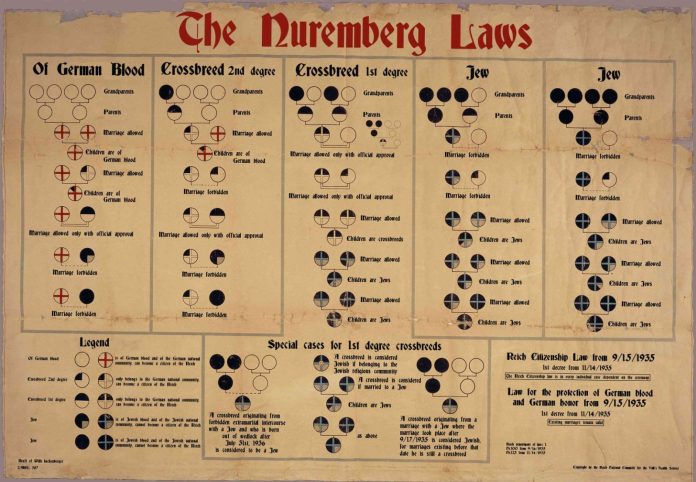− Ayesha Sultana
In the annals of Indian democracy, certain national elections stand as pivotal moments shaping the republic’s trajectory. The 1951-52 elections confirmed India’s commitment to electoral democracy, while the 1977 elections restored constitutional freedoms following the Emergency. The upcoming 2024 elections, however, may be the most consequential since Independence, potentially determining whether India remains a secular democracy.
India’s constitutional secularism mandates that the state remain neutral in matters of religion, ensuring equal rights and freedoms for all citizens, irrespective of their faith. The state is also tasked with intervening in religious practices when they contravene constitutional principles, guaranteeing that minority faiths enjoy the same rights as the majority. Although never perfectly implemented, Indian secularism has faced unprecedented challenges during Prime Minister Narendra Modi’s decade-long leadership. Many fear that India is transforming into a Hindu Rashtra, despite constitutional pledges to secular democracy.
A stark comparison is drawn with Nazi Germany’s 1935 Nuremberg Laws, which stripped Jewish Germans of citizenship and criminalized inter-religious marriages. While India has not enacted laws as explicit as the Nuremberg Laws, recent legislation has raised concerns about echoes of such discriminatory policies. The Citizenship Amendment Act (CAA) of 2019, for instance, introduces religion as a criterion for citizenship, excluding undocumented Muslims from protections afforded to other persecuted minorities from Muslim-majority countries. Critics argue that this law is ideologically driven, positioning India as a homeland for Hindus, contrary to the secular ideals of the Constitution.
Further stoking fears among Indian Muslims are statements from top government officials labeling Muslims as “infiltrators” and the proposed National Register of Citizens (NRC), which could disproportionately affect Muslims. The NRC, implemented in Assam, caused immense hardship, reversing the burden of proof for residents to establish their citizenship. While undocumented Hindus could benefit from the CAA, Muslims could face detention and statelessness.
Equally troubling are the so-called “love jihad” laws enacted in several Bharatiya Janata Party (BJP)-ruled states. These laws, amendments to existing conversion regulations, require inter-faith couples to seek state approval for their marriages, exposing them to legal and social dangers. These laws perpetuate the myth that Muslim men are conspiring to convert Hindu women through marriage, severely curtailing personal freedoms and fueling communal tensions.
India has long been a dangerous place for couples who choose to marry or live with persons of other faiths or “lower” castes. Families themselves are known to murder women and men who transgress these societal barriers, in what are misnamed “honour killings.” Their perils have grown manifold with the spread of the toxic Sangh myth of “love jihad,” the canard that Muslim men are trained to romantically and sexually trap Hindu women into marriage aiming to convert them to Islam and produce masses of Muslim children as part of a demographic conspiracy. But the so-called “love jihad” laws have raised the dangers to inter-faith couples incrementally.
What are popularly termed “love jihad” laws are actually amendments to laws related to religious conversions that debar changes in religion due to marriage. These amendments in seven BJP-ruled states during the Modi years require inter-faith couples to apply to state officials and make public announcements of their desire to marry. These effectively expose couples in such marriages to the perils of jail and the marriage being declared void, and to heightened dangers of vigilante intimidation and violence. These multiple hazards are multiplied when couples choose to live together outside marriage.
These laws in BJP states have been widely interpreted and weaponised by police authorities – and sometimes courts – families of couples in inter-faith relations and vigilantes to forcefully prevent and annul such unions. These have drastically curtailed both religious freedoms and the freedom of adults to choose their partners – for companionship, for sex, for romance and for marriage – outside their faith. These eclipse the pledges of secular democracy in India’s Constitution.
While the official rhetoric and policies in Modi’s India do not explicitly mirror the racial purity laws of Nazi Germany, their implementation and impact resonate with similar exclusionary and discriminatory outcomes. The erosion of equal citizenship rights and the criminalization of consensual inter-faith relationships represent a grave departure from the constitutional promises of secularism and democracy.
As the 2024 elections about to conclude, the future of India’s secular democracy hangs in the balance. The outcome will determine whether India can reclaim its foundational values or continue down a path of increasing religious polarization and majoritarian rule. As Harsh Mander says in his recently published article, in the Scroll, it’s obvious that the dark clouds of 1935 Nuremberg have gathered over Indian skies. He draws a parallel between the current political climate in India and Nazi Germany in 1935. He argues that recent laws and state actions in India, particularly those affecting the Muslim community, echo the discriminatory and exclusionary policies of the Nuremberg Laws, which stripped Jews of their citizenship and criminalized inter-religious marriages. Mander warns that these developments threaten India’s secular democracy and constitutional values, suggesting that the nation is on a dangerous path toward religious majoritarianism.
The dark clouds of historical precedents loom ominously over the nation, posing a critical challenge to its democratic fabric.




